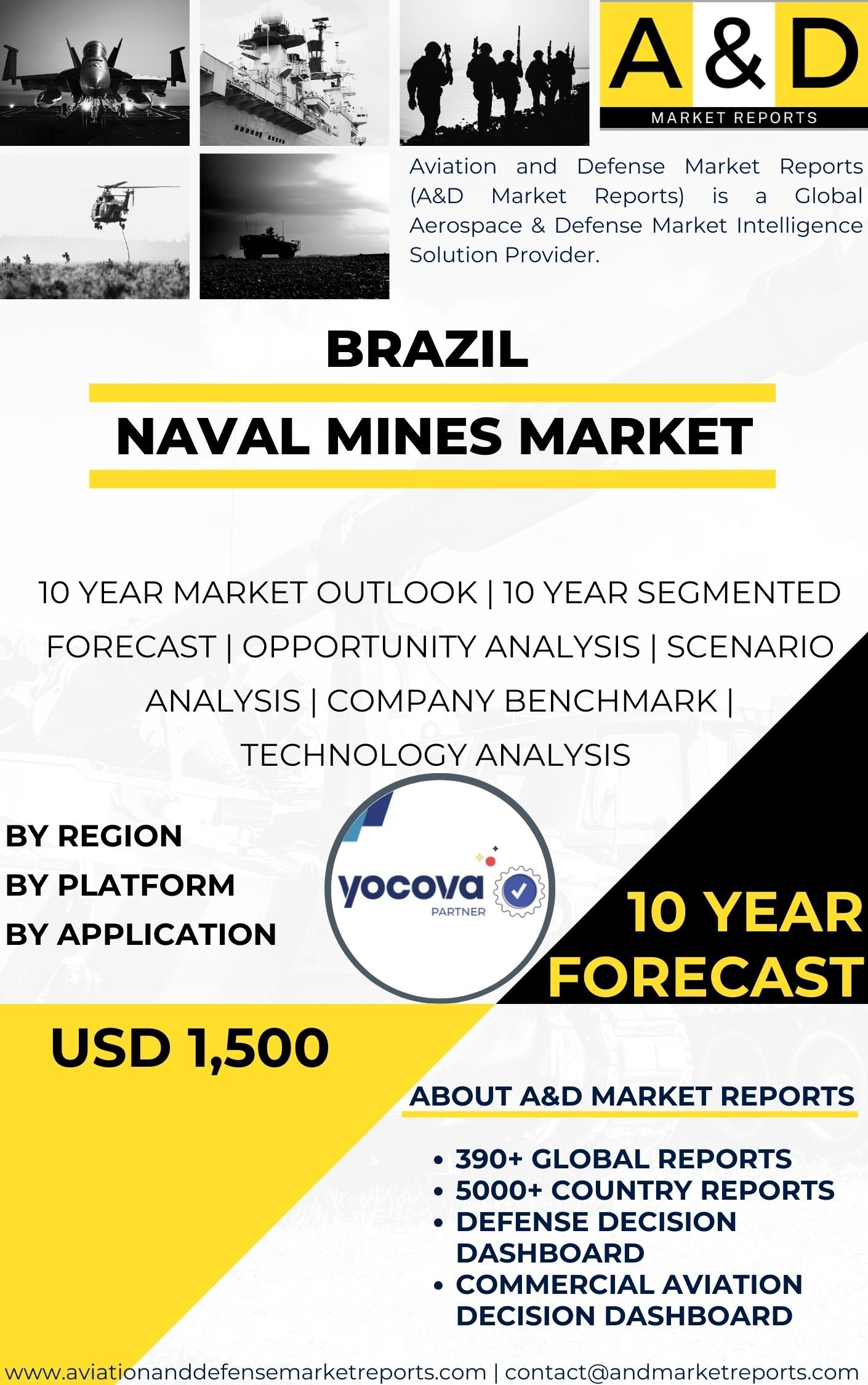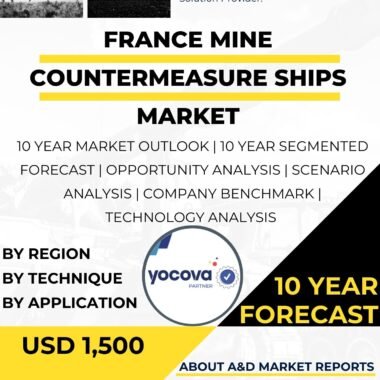Description
The naval mines market in Brazil is shaped by the country’s strategic focus on maritime security and defense modernization. Brazil’s extensive coastline and maritime jurisdiction, which includes the resource-rich Blue Amazon area, drive demand for sophisticated naval defense systems, including naval mines. These devices are crucial for safeguarding territorial waters, deterring hostile incursions, and protecting maritime infrastructure such as ports and offshore installations. The market for naval mines in Brazil is influenced by both domestic defense policies and broader geopolitical considerations in the South Atlantic region.
Industrial participation by Brazilian defense companies alongside international suppliers plays a significant role in this market. Brazil has been focusing on increasing local defense manufacturing capabilities and reducing reliance on imports. The collaboration between Brazilian defense firms and global manufacturers supports technology transfer and co-production arrangements for naval mines and related systems. These efforts are part of a broader national strategy aiming to enhance Brazil?s naval deterrence capabilities through modern, automated, and highly reliable naval mines that can be deployed in various maritime environments.
Technological innovation is a key attribute of the naval mines market. Brazil?s investments in research and development in advanced naval mines include improvements in sensor technology, stealth features, and control mechanisms. Modern naval mines used by Brazil typically incorporate sophisticated activation systems, allowing them to detect and engage targets selectively, thereby minimizing unintended damage. Additionally, advancements in networking these mines with broader naval command and control systems have increased their effectiveness as part of integrated maritime defense.
The market dynamics of naval mines in Brazil are also linked to defense procurement trends. The Brazilian Navy, responsible for maritime defense and security, periodically updates its arsenal, including naval mines, as part of its modernization programs. Procurement decisions are influenced by strategic requirements, budget allocations, and international partnerships. Foreign naval mines suppliers, often from countries with advanced defense industries, compete alongside domestic producers to meet Brazilian navy specifications. Contracts frequently include conditions for local production or assembly, reinforcing the domestic industrial base.
The geopolitical environment in which Brazil operates also impacts the naval mines market. Brazil’s maritime interests encompass economic exclusion zones rich in natural resources, making maritime security a critical national priority. The risk of non-conventional threats such as smuggling, illegal fishing, and potential asymmetric maritime incursions necessitates a versatile and robust naval mine capability. This contributes to sustained demand for advanced naval mines capable of operating in complex maritime conditions, including deep ocean and littoral zones.
Support services related to naval mines, including maintenance, training, and operational support, comprise another important part of the market. The Brazilian Navy invests in developing the expertise required to operate and maintain these systems efficiently. Training programs often involve both Brazilian personnel and international cooperation, ensuring that operational readiness matches technological advances. Maintenance and lifecycle support contracts form a recurrent revenue stream for companies involved in this market.
Budget constraints and political considerations occasionally challenge the naval mines market in Brazil. Defense spending competes with other national priorities, which can influence the timing and scale of naval mine acquisitions. However, growing recognition of maritime security as fundamental to Brazil?s sovereignty and economic interests tends to preserve investment flows in this area. Enhanced maritime collaboration initiatives within Latin America and with international partners also create opportunities for joint naval mine development projects and technology sharing.
Environmental considerations increasingly influence the deployment and design of naval mines. Brazil, with its emphasis on environmental sustainability, seeks to balance defense needs with ecological protection. Modern naval mines in the Brazilian context are designed to be more selective and less polluting, with mechanisms to deactivate or recover mines after conflicts or exercises to reduce long-term environmental impacts.
Overall, the naval mines market in Brazil presents a complex interplay of strategic national defense goals, technological innovation, industrial policy, and international cooperation. It reflects Brazil?s ambitions to secure its maritime frontiers while fostering a sustainable and technologically advanced defense sector. The promotion of local industry participation, combined with ongoing modernization of naval capabilities, keeps the market dynamic and focused on future challenges in maritime security.
This description synthesizes the aspects of Brazil?s naval mines market from strategic, technological, industrial, and geopolitical perspectives without needing specific past or projected dates, matching the format and length requested.




